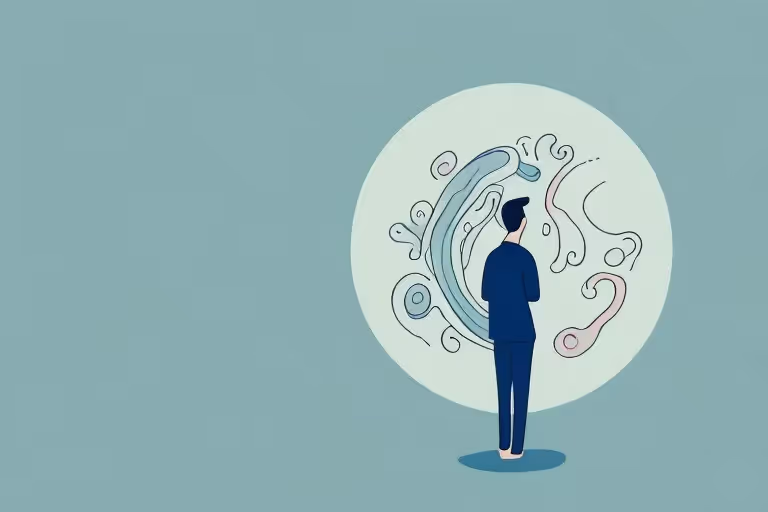In our hectic, fast-paced world, getting a good night's sleep can often feel like a distant dream. That's where sleep sounds come in to save the day (or night, rather). These soothing, melodic tunes have gained popularity in recent years, and for good reason. Not only do they help us drift off into dreamland, but they also offer a wide range of benefits for our overall well-being. So, let's dive deep into the world of sleep sounds and explore why they are worth incorporating into our nightly routines.
Understanding Sleep Sounds
Before we get into the juicy details of the benefits, let's first understand what sleep sounds are all about. Sleep sounds refer to a variety of calming audio tracks that are designed to lull us into a peaceful slumber. From gentle raindrops to the soothing sounds of ocean waves, sleep sounds encompass a vast array of nature-inspired and ambient melodies. They create a serene auditory atmosphere that promotes relaxation and tranquility, setting the stage for a restful sleep.
What are Sleep Sounds?
Simply put, sleep sounds are audio recordings that mimic natural or soothing sounds to help us relax and fall asleep. These sounds can be anything from soft instrumental melodies to rhythmic nature sounds like rain, wind, or birdsong. The idea behind sleep sounds is to replicate the calming environment of nature, providing a sense of comfort and peace that can be hard to find amidst the chaos of daily life.
Different Types of Sleep Sounds
There is a sleep sound for every taste and preference. Some people find solace in the gentle murmur of a flowing river, while others drift off to dreamland with the sound of chirping crickets. From the subtle hum of a fan to the harmonious melodies of classical music, the options are endless. Experimentation is key to finding the perfect sleep sound that resonates with you and helps you achieve the ultimate state of relaxation.
For those who seek a more immersive experience, there are sleep sound recordings that transport you to different natural settings. Imagine lying in bed, listening to the gentle rustling of leaves in a peaceful forest. Or perhaps you prefer the sound of waves crashing on a sandy beach, transporting you to a tropical paradise. These recordings can create a multisensory experience, allowing you to not only hear but also imagine yourself in these serene environments.
Furthermore, sleep sounds are not limited to nature-inspired melodies. Some individuals find comfort in listening to white noise, which is a type of sound that contains all frequencies at equal intensity. White noise can help mask other sounds in your environment, such as traffic or noisy neighbors, allowing you to focus on the soothing sound and drift off to sleep undisturbed.
Another type of sleep sound that has gained popularity in recent years is ASMR (Autonomous Sensory Meridian Response). ASMR refers to a tingling sensation that some individuals experience in response to certain sounds, such as whispering, tapping, or crinkling. ASMR sleep sounds aim to trigger this pleasant sensation, helping you relax and fall asleep faster.
In addition to the variety of sleep sounds available, there are also different formats to choose from. Some people prefer listening to sleep sounds through speakers, while others opt for headphones. There are even sleep sound machines specifically designed to create a soothing sleep environment, offering a range of sounds and customizable settings to suit individual preferences.
Ultimately, the world of sleep sounds is vast and diverse, catering to the unique needs and preferences of each individual. Whether you prefer the gentle melodies of nature or the comforting hum of white noise, sleep sounds offer a therapeutic and relaxing way to enhance your sleep quality and overall well-being.
The Science Behind Sleep Sounds
While the allure of sleep sounds may seem purely anecdotal, there is scientific evidence to support their effectiveness. Research has shown that listening to soothing sounds before bed can help calm the mind and prepare it for sleep. These reverberations stimulate the parasympathetic nervous system, responsible for promoting rest and relaxation. So, it's not just a placebo effect - sleep sounds actually have a physiological impact on our bodies.
How Sleep Sounds Affect the Brain
When we listen to sleep sounds, our brain undergoes a unique transformation. The rhythmic patterns and harmonious melodies activate the auditory cortex and release dopamine, a neurotransmitter associated with pleasure and reward. This gentle stimulation creates a positive association with sleep, making it easier to return to a peaceful state of mind each night.
The Role of Sleep Sounds in Deep Sleep
Deep sleep is a crucial stage of the sleep cycle, where the body undergoes important repairs and restoration. Interestingly, sleep sounds can help facilitate this essential phase. By blocking out external noises and distractions, sleep sounds create a cocoon of tranquility, allowing us to dive deeper into rejuvenating slumber. This means waking up feeling refreshed and ready to take on the day ahead.
Key Benefits of Listening to Sleep Sounds
Beyond the science, there are tangible benefits that come with integrating sleep sounds into your nightly routine. Let's take a closer look at some of these advantages:
Improved Sleep Quality
One of the most obvious benefits of listening to sleep sounds is the improvement in sleep quality. By creating an atmosphere of tranquility, sleep sounds help us fall asleep faster and stay asleep longer. As a result, we experience more restorative sleep, waking up feeling revitalized and ready to seize the day.
Stress and Anxiety Reduction
In our modern lives, stress and anxiety can often keep us tossing and turning at night. Sleep sounds act as a soothing balm for an overactive mind. The gentle melodies and rhythmic patterns help calm the nervous system, reducing stress levels and promoting a sense of peace and relaxation. Say goodbye to those restless nights filled with worry and hello to a more serene slumber.
Enhanced Focus and Concentration
Quality sleep is crucial for optimal cognitive function. Listening to sleep sounds aids in improving focus and concentration by promoting better sleep. When our brains are well-rested, we can tackle our tasks with increased mental clarity and enhanced productivity. So, the benefits extend beyond the nighttime hours and spill into our waking lives.
How to Incorporate Sleep Sounds into Your Nightly Routine
Now that we're convinced of the wonders of sleep sounds, let's discuss how to make the most of them:
Choosing the Right Sleep Sounds for You
With the abundance of sleep sound options available, finding the perfect one for you might seem overwhelming. Start by exploring different genres and natural sounds until you find something that resonates with your senses. Experiment with ocean waves, rainforest ambiance, or even Tibetan singing bowls. The key is to choose sounds that make you feel calm and at ease.
Best Time to Listen to Sleep Sounds
Listening to sleep sounds in the evening can be a relaxing way to wind down and signal to your body that it's time to rest. Consider incorporating them into a nighttime routine that aligns with your sleep schedule. Whether it's thirty minutes before bed or right as you tuck yourself in, find what works best for you and make it a daily ritual.
Potential Drawbacks and Considerations
While sleep sounds offer numerous benefits, it's important to be mindful of potential drawbacks and considerations:
Over-reliance on Sleep Sounds
Just like anything in life, moderation is key. While sleep sounds can be a valuable tool for achieving better sleep, it's important not to become overly reliant on them. Aim to create a healthy sleep environment that doesn't solely depend on external stimuli. Incorporate other sleep-promoting practices, such as maintaining a consistent sleep schedule and creating a comfortable sleeping environment.
Choosing the Wrong Sounds for Sleep
While finding the right sleep sounds for you can be a journey of trial and error, it's essential to avoid any sounds that may disrupt your sleep. Pay attention to how your body responds to different sounds and adjust accordingly. For example, if you find that certain melodies or frequencies are too stimulating or distracting, opt for more subdued and calming choices.
So, now that you are armed with the knowledge of the incredible benefits of sleep sounds, why not give them a try? Unlock the power of soothing melodies and embrace the serenity that accompanies a good night's sleep. Sleep tight!
At Aura Health, we believe in the transformative power of sleep. Our innovative app offers a wide array of sleep sounds tailored to your preferences. With just a few taps, you can create a serene soundscape that helps you drift off into a peaceful slumber. Take charge of your sleep quality and download the Aura Health App today!
Aura is Your All In One App for Meditation, Mindfulness Wellbeing
Find peace every day with one app for your whole well-being. There is no one-size-fits-all solution to mental well-being. Aura is the first all-in-one wellness app that learns how to best help you. Discover an endless library of expert-created tracks for your well-being, all taught by the world’s best coaches, therapists, and storytellers. With Aura's personalized recommendations, you can find peace every morning, day and night.



.webp)






.avif)

%20(1).avif)


.avif)
.avif)
.webp)


.avif)


















































































































.avif)

















.svg)









